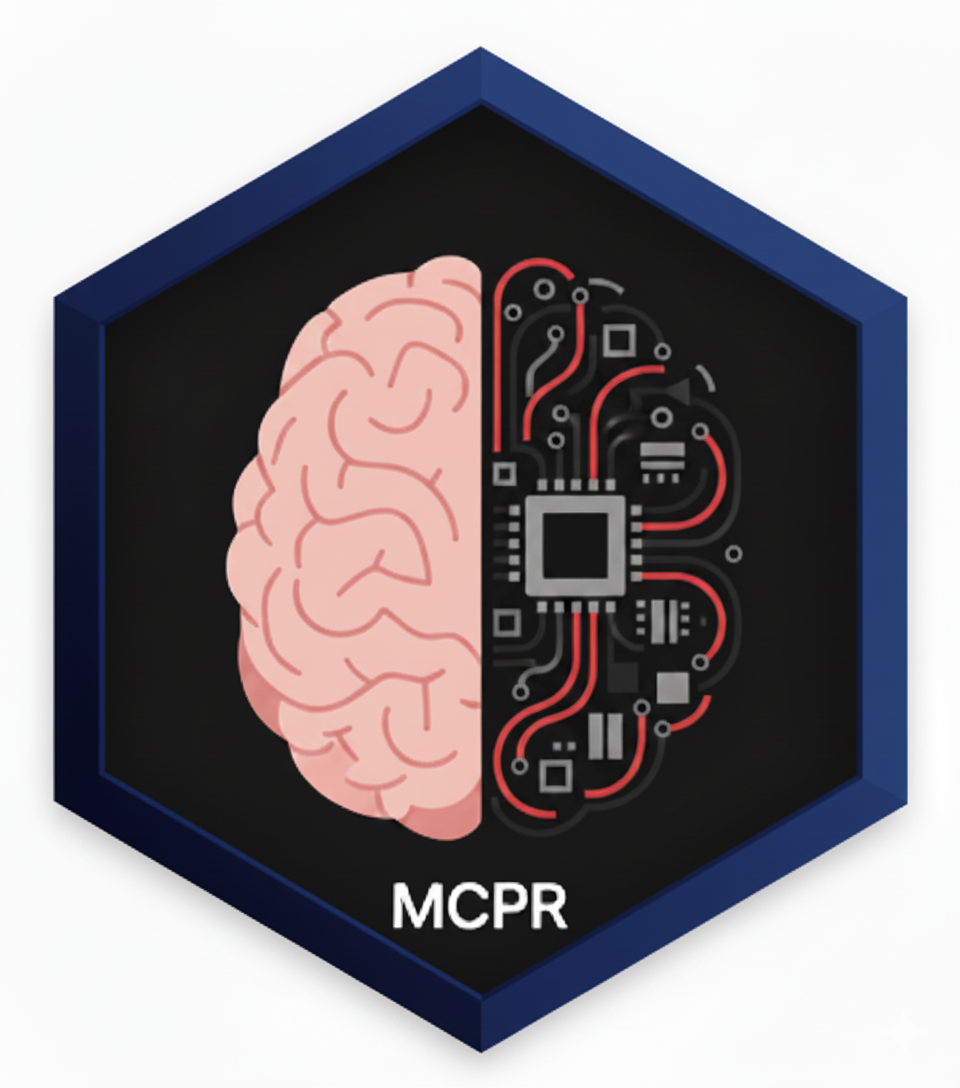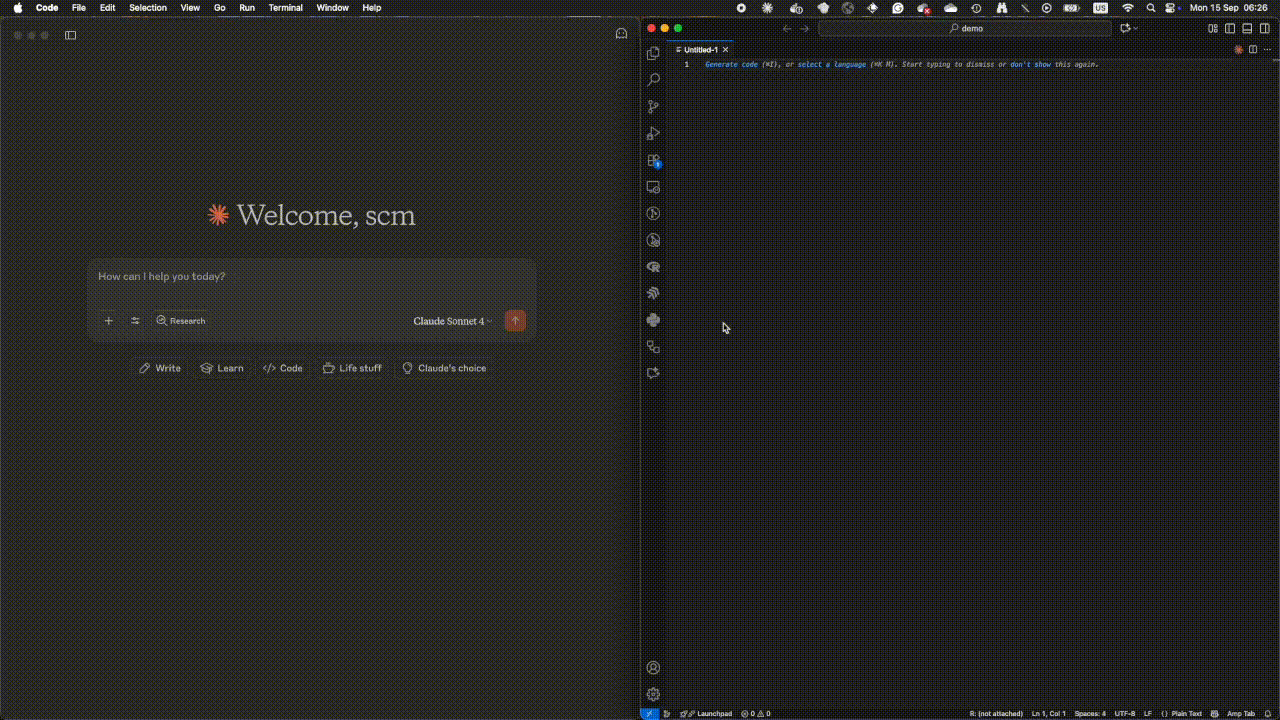Announcing MCPR: The First AI Protocol for Live R Sessions
Published:
Introduction
Every month brings new AI coding benchmarks showing superhuman performance. Yet any data scientist who has worked with Claude Code, GitHub Copilot, or similar tools discovers a maddening reality: these supposedly advanced agents must be kept on an impossibly short leash. Despite stellar demos and impressive performance scores, current AI assistants fail catastrophically at the iterative, stateful work that defines serious data analysis.
The problem manifests in two equally frustrating ways. First, we have the chatboxs, this involves asking questiosn and copying and pasting code snippets back and forth—transforms what should be seamless collaboration into a tedious exercise in manual context management. Then, we have the AI agents, but they only know bash and invoke Rscript for every operation, obliterating workspace state and forcing complete pipeline reconstruction for minor changes. Moreover, if you leave then running for long, their erors compound across steps as variables get redefined and assumptions change. Thus, neither approach supports the cumulative, hypothesis-driven exploration that characterizes sophisticated analytical work.
The deeper issue stems from architectural assumptions borrowed from software engineering. AI tools are fundamentally designed for code that lives in executable scripts and runs repeatedly. When you ask an AI agent to modify a plot color in your three-hour analysis session, it doesn’t adjust your existing visualization—it rebuilds your entire analytical pipeline from scratch. This approach is antithetical to exploratory data analysis, where insights emerge through cumulative investigation, hypothesis testing, and iterative refinement spanning hours or days.
Announcing MCPR: The First AI Protocol for Live R Sessions 
Today, I’m announcing MCPR, the first Model Context Protocol server designed specifically for interactive R sessions. MCPR solves this problem by enabling AI agents to operate within your live R environment. The breakthrough is treating the AI agent as a translator between Natural English intent to R’s syntax, operating in a persistent session where your workspace state is preserved.
Instead of generating isolated scripts, the agent becomes your “computational hands.” You direct the analytical strategy; the agent executes the code within your established context.
- It Eliminates Overhead: Exploratory changes no longer require expensive pipeline rebuilds.
- It Amplifies Judgment: Your time shifts from managing code snippets to high-value tasks like hypothesis refinement and interpretation.
- It Manages Risk: By operating in a continuous environment, MCPR prevents the compounded errors that arise when context changes between isolated scripts.
The rule for successful AI collaboration has always been to delegate the work, not the thinking. MCPR is the first tool that makes this a practical reality for data scientists.
Architecture Philosophy: Simplicity Scales
MCPR’s design philosophy prioritizes minimal tool interfaces that compose into powerful workflows. Rather than overwhelming agents with dozens of specialized functions, MCPR provides four essential tools: session management, code execution, plot generation with intelligent token optimization, and environment introspection. The communication layer leverages JSON-RPC 2.0 over lightweight sockets, ensuring cross-platform compatibility and non-blocking interactions.
Getting Started: From Installation to Insight
Setting up MCPR takes minutes. Install the package from GitHub:
remotes::install_github("phisanti/MCPR")
library(MCPR)
install_mcpr(agent = "claude") # Configures MCP integration for claude, copilot, or gemini
Next, start a listener in your R console. This makes your session available to the agent.
# Make your current R session available
MCPR::mcpr_session()
That’s it. Now, you can simply ask your AI assistant to take over. Instruct your AI agent to connect, and watch the collaboration transform. Instead of explaining what you want and manually copying code, simply make request in plain English. The agent doesn’t generate a script for you to copy—it executes directly within your live session: You think: “Let’s filter this dataset for outliers and re-run the regression.” The agent works: It executes the dplyr and lm commands in your live session, using the objects you’ve already created.

The take home message
This isn’t about replacing human analytical judgment. It’s about amplifying it through optimal task delegation. When mechanical execution happens automatically within maintained context, when exploratory changes don’t require expensive rebuilds, when AI agents become computational extensions of analytical thinking rather than separate tools requiring constant management—that’s when human-AI collaboration finally serves discovery rather than creating overhead.
The rule for successful AI collaboration has always been: delegate the work, not the thinking. MCPR is the first tool that makes this philosophy a practical reality.
Acknowledgments
We thank Simon P. Couch(mcptools) for the inspiration to use nanonext and Aleksander Dietrichson (mcpr) for the idea of using roxygen2 for parsing tools.
